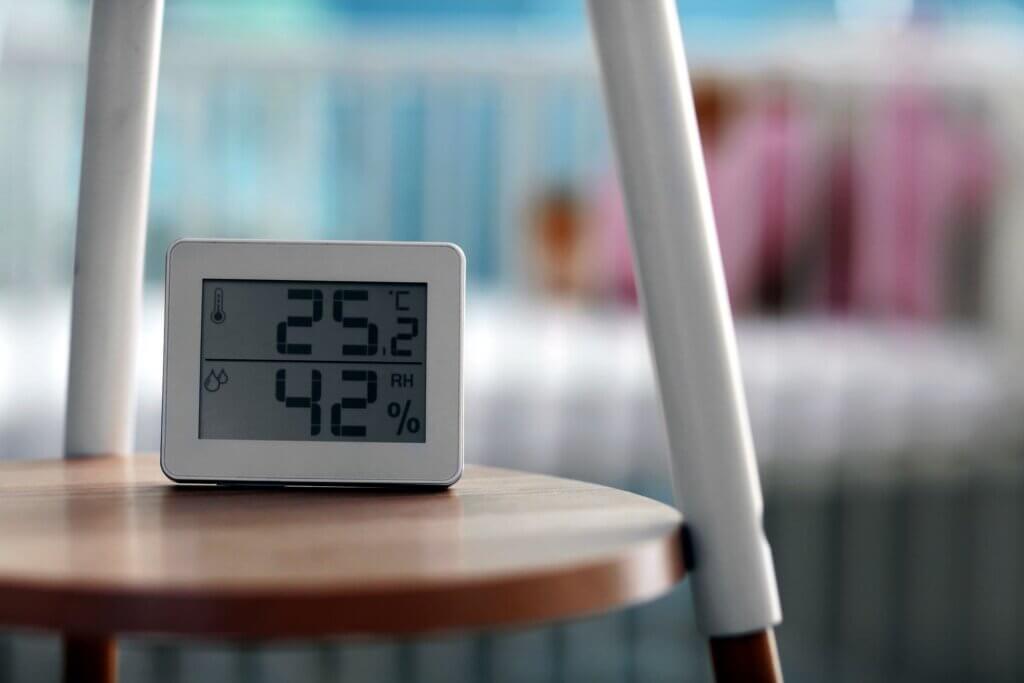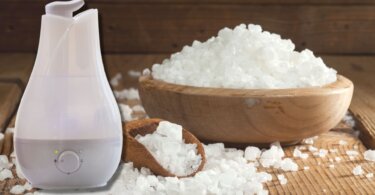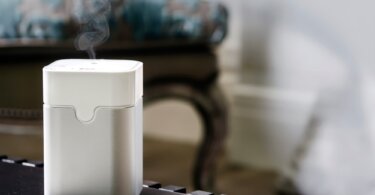In the winter, the air around us becomes dry. But when we turn on our room heaters, we feel that the air has become even drier. How is that possible?
Heaters do not cause the air to become dry. Instead, when the air starts getting warmer, its capacity to hold water molecules increases. This causes the air around you to suck in more moisture from your body.
In this article, we talk about how heaters cause you to feel dry and other ways to reduce humidity in your room.

Do Heaters Reduce Humidity?
No. But, heaters appear to reduce indoor humidity. However, heaters do not affect absolute humidity but instead, increase the relative humidity in a room.
Confused? Well, before we can explain what any of this means, we need first to understand these terms better.
Understanding Absolute and Relative Humidity
When we think of humidity, what most people assume is the amount of moisture present in the air. This is known as absolute humidity.
However, the air around us is not always constant. It heats up when the weather is hot and cools down when it is low. It can also get heated or cooled from artificial sources like heaters and air conditioners.
Relative humidity measures the amount of water vapor the air contains as a percentage of the capacity of the moisture it can hold. It is expressed as a percentage.

For instance, the air is completely saturated if a room’s relative humidity is 100 percent. It means the air cannot hold any more water vapor. If you cool saturated air, the water vapor in the air will start to condense.
Similarly, if the relative humidity is 50 percent, it indicates that the air contains only half of the maximum water vapor it can hold.
The interesting thing to note is that air has a different capacity to hold moisture at different temperatures. It can hold more water if the temperature is higher. Therefore, relative humidity is a function of the temperature of a room.
If the temperature rises and the moisture in the air remain the same, then the relative humidity decreases. But, when the temperature decreases and moisture remain the same, the relative humidity increases.
Humans Can Only Sense Relative Humidity, But Not Absolute Humidity
Humans perceive humidity through the amount of moisture that gets sucked out of our skin by the air around us. We don’t have any way to tell us what the absolute humidity is. For us, relative humidity is the only thing we can feel.
The humidity level affects our body directly. If the relative humidity is too high, we may feel sweaty and uncomfortable. Similarly, if the relative humidity is too low, we might have itchy skin, nose, and throat.
This is because in a room with low relative humidity, the air draws moisture from your skin. Whereas in a high relative humidity space, our skin retains too much moisture causing sweating.
Why Do Heaters Reduce Relative Humidity?
Air is a mixture of gases, water vapor, and dust particles. When you heat up a room, the water molecules in it get warmer, more energetic, and become less likely to condense. Therefore, when air is warmer, more water molecules can remain in the water vapor state rather than condensing.
Whenever you use a heater in a closed room, the temperature of the air in it starts to increase. Lesser water molecules condense, hence more and more stay in the water vapor form. This reduces the relative humidity of the room.
Eventually, whatever moisture is getting absorbed from your skin to the air stays there and does not condense back, causing your skin to feel drier.
Other Ways To Reduce Humidity In Your Room
It is important to have the right level of relative humidity in the room. Too much humidity causes sweating and makes you uncomfortable. It can also cause mold and mildew, which can lead to allergies and severe respiratory problems.
The moisture in the air can also cause your wooden furniture to rot in time. Even wallpapers may start peeling from the wall if the relative humidity is too high. On the other hand, low humidity can cause itchiness in your throat and eyes. It may also cause several skin issues.
It is important to maintain the correct humidity level in your house. The indoor humidity should be 40 – 60 percent throughout the year. To measure the humidity levels in your home, you can use a hygrometer.
While using a room heater can help control humidity, it is an expensive proposition because the heater will run on electricity. Here are a few other ways you can reduce the humidity in your house.
1. Use Your Air Conditioner
Air conditioning works by removing warm, humid air and replacing it with dry, cool air in your room. In fact, both air conditioners and dehumidifiers work on almost the same technology.
If you use an air conditioner in your room, there are a few things you should keep in mind. Try to clean the filters of your air conditioner at least once every two weeks.
Dust accumulates on the filter and prevents the absorption of warm and moist air inside the room. Therefore, your air conditioner will not be able to dry your home if its filters are dirty.
Related article: Does An Air Conditioner Purify Air?
2. Don’t Take Hot Showers
Whenever you take a hot shower, you add humidity to the bathroom and eventually, rooms surrounding your bathroom. So, if you want to reduce the humidity level, take showers at a lower temperature.
That does not mean we recommend taking an ice bath! Just make sure that you are not taking the water temperature too high when taking a bath or shower.
3. Dry Your Clothes Outside
There are some clothes which cannot be put in the dryer. Don’t dry them inside your house, as it will add humidity to your room. It’s best to dry those clothes outside your house.
If you don’t have a yard or a place to hang your clothes outside, it is best to purchase a dehumidifier. It will help remove extra moisture in your house and maintain the right humidity level.
Related article: Is Drying Clothes On A Radiator A Good Idea?
4. Charcoal Briquettes
Charcoal briquettes were earlier used only for barbecuing. But you can also use them for dehumidifying your room.
Take some charcoal briquettes and place them in the basket. Charcoal naturally absorbs moisture in the air and helps reduce humidity.
Related article: Does Bamboo Charcoal Air Purifier Bag Really Work?
5. Fix Leaking Pipes
Do you see any water spots on your walls or ceiling? If yes, that indicates there is a leaky pipe somewhere in your bathroom or kitchen.
When your pipes and faucets leak, they can increase the humidity in your house. They add moisture to the room by dripping water. Make sure you fix any and all leaks.
Frequently Asked Questions
1. Does A Heater Take Humidity Out Of The Air?
Heaters do not take humidity from the air. But when the air gets hotter, it’s capacity to hold water increases. It starts to extract more moisture from the occupants in the room.
So, using a heater will not affect absolute humidity but reduces relative humidity significantly which makes your skin feel dry.
2. How Can I Dehumidify My Room Fast?
Here are a few ways to dehumidify your home.
- Place moisture absorbers in your home (use several units in different rooms).
- Remove indoor plants from your room as they emit moisture. You can replace them with artificial plants.
- Install a solar air heater.
- Fix leaks in your house. Leaks can add moisture, so it’s best to repair them quickly.
- Improve ventilation in your home by opening windows.
3. Does Cold Air Reduce Humidity?
No. But cold air contains less moisture than warm air.
However, when cold air moves inside your house, it warms up and its capacity to draw moisture from humans and plants increases. Therefore, the relative humidity goes down, and you start to feel drier.
4. What Takes The Humidity Out Of The House?
You can use moisture absorbers, dehumidifiers, or air conditioners to remove humidity from your house.
Air conditioners help in cooling but can also dehumidify because they replace the moist warm air in the room with cool, dryer air.
Conclusion
Heaters don’t reduce humidity, they just make you feel drier because they impact relative humidity. The indoor humidity level should be 40 – 60 percent throughout the year.
High relative humidity can lead to sweating, mold, and damage to your expensive furniture. Low relative humidity can cause dryness and itching.
Related article: How Long Does a Humidifier Take To Work?






Leave a Comment